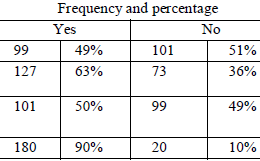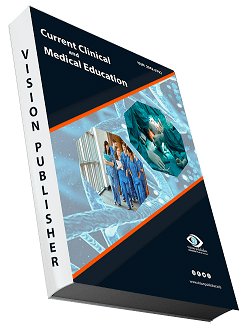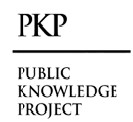Barriers Related To COVID‐19 Vaccination among Undergraduates Nursing Students
Keywords:
Barriers, COVID‐19, Vaccination, Undergraduates Nursing StudentsAbstract
Background: Since the initial notification of a series of severe respiratory disease cases in China, the current coronavirus outbreak, known as COVID-19, has spread throughout the world, wreaking havoc on people's lives, families, communities, and societies. As a result, the World Health Organization (WHO) declared a pandemic.
Aims: Explore the level of COVID‐19 vaccine hesitancy and determine the factors and obstacles that could influence vaccination choices.
Methods: cross-sectional design was conducted on (200) Undergraduates nursing students (males and females) in four classes who were studying at (Baghdad colleges of medical sciences Nursing department ) started from November 16th 2021 up to the end of 19th May 2022 A questionnaire was constructed for the purpose of the study .A Data was collected using a questionnaire style, which included (4) parts: Socio-demographic characteristics ,student's knowledge related to barriers.
Results and conclusion: The study concluded that 48%) females and (52%) males, (48%) (58%) of them were between (18 – 22) years old, and (98%) they know what's the meaning of COVID-19. the (90%) of total nursing students who have moved to take the vaccine. Barrier about receive of the vaccine (96%) prefer to wait for more experiments and results about this vaccine.
Recommendation: The study recommended by increase Information by the media, social media on COVID-19 vaccines, particularly with reference to falsehoods and fear of side effects. There is a need to develop public health education programming and messaging to encourage vaccine uptake among college students
Downloads
References
Abdelkader FA, Alkubati SA, Alsabri M, McClean C, Albagawi B, Alsaqri SH, Al-Areefi M, Abo Seada AI.COVID-19 vaccination knowledge, perception, and reason for adherence and nonadherence among Nursingstudents in Egypt. SAGE open nursing. 2022 Nov;8:23779608221141234.
Fortner A, Schumacher D. First COVID-19 vaccines receiving the US FDA and EMA emergency useauthorization. Discoveries. 2021 Jan;9(1).
Hajj Hussein I, Chams N, Chams S, El Sayegh S, Badran R, Raad M, Gerges-Geagea A, Leone A, Jurjus A.Vaccines through centuries: major cornerstones of global health. Frontiers in public health. 2015 Nov26;3:269.
Al Kazzaz HH. COVID19 vaccination choice among Iraqi students at Al-Zahraa University for women.F1000Research. 2021;10.
Hasan H, Raigangar V, Osaili T, Neinavaei NE, Olaimat AN, Aolymat I. A cross-sectional study on university students’ knowledge, attitudes, and practices toward COVID-19 in the United Arab Emirates. The American journal of tropical medicine and hygiene. 2021 Jan;104(1):75.
Abd Elgalil HM, Elsheikh AA, Ahmed DS, Ahmed AM, Mohamed SS. COVID-19 vaccination perception and acceptance among female medical and nursing students at Al-Azhar University, Egypt. Infection and Drug Resistance. 2023 Dec 31:1069-79.
Chaves ÍE, Brito PR, Rodrigues JG, Costa MS, Cândido EL, Moreira MR. Hesitation regarding the COVID-19 vaccine among medical students in Brazil. Revista da Associação Médica Brasileira. 2021 Nov26;67:1397-402.
Kanyike AM, Olum R, Kajjimu J, Ojilong D, Akech GM, Nassozi DR, Agira D, Wamala NK, Asiimwe A,Matovu D, Nakimuli AB. Acceptance of the coronavirus disease-2019 vaccine among medical students in Uganda. Tropical medicine and health. 2021 May 13;49(1):37.
El-Elimat T, AbuAlSamen MM, Almomani BA, Al-Sawalha NA, Alali FQ. Acceptance and attitudes towardCOVID-19 vaccines: A cross-sectional study from Jordan. Plos one. 2021 Apr 23;16(4):e0250555.
Kaya MO, Yakar B, Pamukçu E, Önalan E, Akkoç RF, Pirinçci E, Gürsu MF. Acceptability of a COVID-19vaccine and role of knowledge, attitudes and beliefs on vaccination willingness among medical students. The European Research Journal. 2021;7(4):417-24.
Patel A, Team Jernigan DB. Initial public health response and interim clinical guidance for the 2019 novel coronavirus outbreak-United States, December 31, 2019-February 4, 2020.
El-Elimat T, AbuAlSamen MM, Almomani BA, Al-Sawalha NA, Alali FQ. Acceptance and attitudes towardCOVID-19 vaccines: A cross-sectional study from Jordan. Plos one. 2021 Apr 23;16(4):e0250555.
Grant WB, Lahore H, McDonnell SL, Baggerly CA, French CB, Aliano JL, Bhattoa HP. Evidence that vitamin D supplementation could reduce risk of influenza and COVID-19 infections and deaths. Nutrients.2020 Apr;12(4):988.
Siddiqui S, Alhamdi HW, Alghamdi HA. Recent chronology of COVID-19 pandemic. Frontiers in public health. 2022 May 4;10:778037.
Comito C, Pizzuti C. Artificial intelligence for forecasting and diagnosing COVID-19 pandemic: A focused review. Artificial intelligence in medicine. 2022 Jun 1;128:102286.

Downloads
Published
How to Cite
Issue
Section
License

This work is licensed under a Creative Commons Attribution 4.0 International License.
Current Clinical and Medical Education













